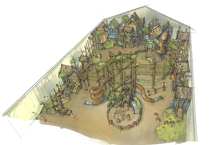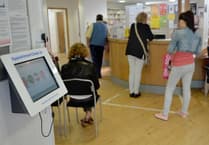More people were estimated to be sleeping rough in East Hampshire last year, new figures suggest.
The figures come as the number of rough sleepers across England rose for the first time since 2017, despite a Government manifesto promise to end rough sleeping by 2024.
It urged the Government to unfreeze housing benefit – which remains at 2020 levels – and build more affordable social homes.
Department for Levelling Up, Housing and Communities figures show six people were estimated to be sleeping rough in East Hampshire based on a snapshot of a single night in autumn last year – up from one the year before.
The Government promised to eradicate homelessness by next year, but charities have called for greater action as the total number of rough sleepers across the country rose for the first time since 2017.
The figures suggest 3,069 people were estimated to be sleeping rough in England last year – a 26% rise on the 2,443 rough sleepers in 2021.
Polly Neate, chief executive of Shelter, said: "Today’s figures show that more and more people are losing the battle to keep a roof over their heads. We’re facing a truly bleak situation."
Ms Neate called on the Government to unfreeze housing benefit and "build social homes with rents pegged to local incomes".
The figures also show the rate of rough sleepers has risen across the country – from 4.3 per 100,000 people in 2021 to 5.4 per 100,000 last year.
In East Hampshire, 4.8 per 100,000 people were estimated to be sleeping rough last year – up from 0.8 the previous year.
Homeless Link, the national membership charity for frontline homelessness organisations, said the rise in rough sleepers "represents a massive, collective failure".
Chief executive Rick Henderson said: "People are being let down by systems that should protect them, forced onto the streets at the expense of their physical and mental health.
"The 26% rise is evidence of how the cost-of-living crisis has exacerbated long-standing drivers of homelessness, such as a shortage of affordable housing, an often-punitive welfare system and increasingly stretched health services."
Mr Henderson also urged the Government to address funding shortages in the upcoming Spring Budget, unfreeze housing benefit and deliver on rental reforms to prevent further people from becoming homeless.
The Department for Levelling Up, Housing and Communities said rough sleeping remains below pre-pandemic levels but admits "there is more to do" to end rough sleeping for good.
A spokesperson said Section 21 no-fault evictions will be abolished and £2 billion will be invested over the next three years.
The Government has also invested £11.5 billion to deliver affordable homes for rent and to buy across the country, they added.




